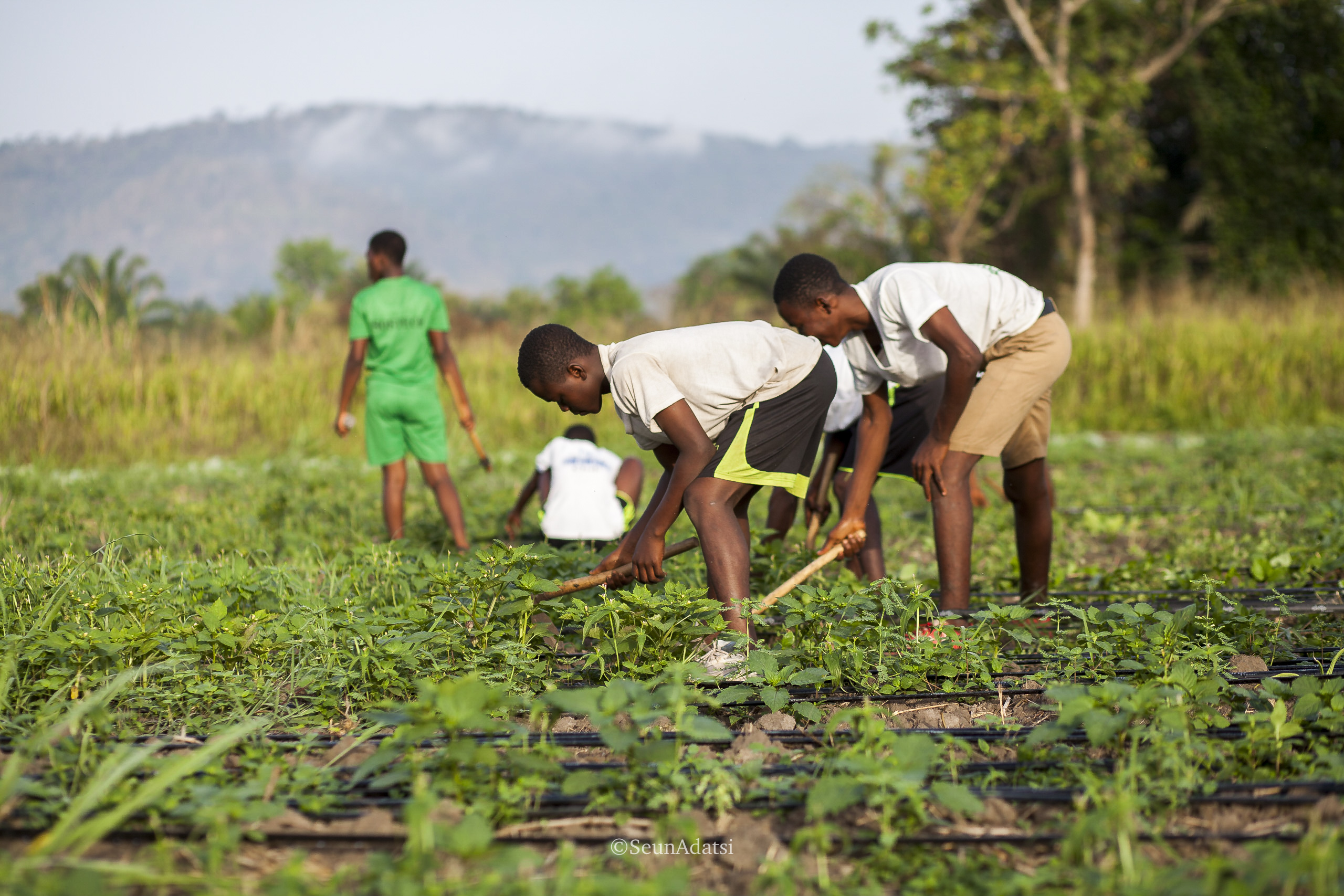Ghana SHS to launch school farms under Free SHS to cut costs and boost food security

The Director of the Presidential Initiative on Agriculture and Agribusiness, Dr Peter Boamah Otokunor, has revealed that senior high schools (SHS) across Ghana will soon begin cultivating their own farms as part of efforts to address persistent food shortages and feeding delays under the Free SHS programme.
Speaking at a consultative meeting with key stakeholders at St. Thomas Aquinas Senior High School in Accra on Friday, August 29, 2025, Dr Otokunor explained that the initiative will establish on-campus farms dedicated to seven priority crops: rice, maize, sorghum, soybeans, onions, tomatoes, and, where possible, cassava and yams.
He highlighted that the intervention is aimed at reducing the rising cost of feeding 1.37 million students, which exceeded GH¢2.8 billion in 2024.
“The initiative is targeting more than 15,000 acres for the cultivation of selected crops to support the food and nutritional needs of our schools,” he said.
According to him, the project is expected to cut annual school feeding expenses by 30 to 50 per cent, translating into savings of between GH¢840 million and GH¢1.4 billion.
These savings, he noted, would allow the government to channel resources into other critical areas of education and national development.
READ MORE: Majority caucus demands annulment of Ayawaso East NDC Primary
To support the farms, schools will receive certified seeds, fertilisers, mechanisation services, and training in climate-smart agriculture.
Dr Otokunor emphasised that no direct cash transfers will be made to the schools.
“Every input that is required will be provided. Seeds will be provided, fertiliser will be provided, and mechanisation will be provided,” he assured.
Each school will establish a farm committee, chaired by the headmaster and comprising teachers and students, to ensure transparency and accountability.
Furthermore, between 1,400 and 2,100 unemployed agriculture graduates will be recruited as farm managers, supported by national service personnel. The programme is expected to generate up to 10,000 indirect jobs across the agricultural value chain.
For schools in urban areas where land is limited, Dr Otokunor proposed modern alternatives such as vertical farming and hydroponics.
READ MORE: Baba Jamal wins Ayawaso East NDC parliamentary primary
“In a small space, even a quarter of this room, you can grow the equivalent of 10 acres of vegetables using vertical farming,” he explained.
The programme will also include livestock farming to enhance protein intake. It is scheduled to officially launch in September at Peki Senior High School in the Volta Region, with President John Dramani Mahama in attendance.
Dr Otokunor stressed that beyond addressing food shortages, the broader vision of the initiative is to reduce Ghana’s dependence on food imports, minimise post-harvest losses through school-based supply chains, and provide students with hands-on agricultural skills at a time when unemployment remains at 13.6 per cent.
“This initiative is not simply about farming. It is about transforming our schools into centres of agro-innovation, practical learning, productivity and food self-reliance,” he stated.
Stakeholders present at the meeting included representatives of the Ghana Education Service, GETFund, teacher unions, the Conference of Heads of Assisted Secondary Schools (CHASS), and Parent-Teacher Associations.
Dr Otokunor urged them to take shared responsibility to ensure the initiative thrives and endures over the long term.


